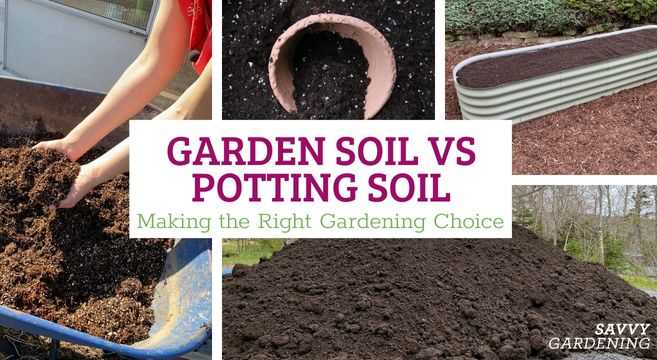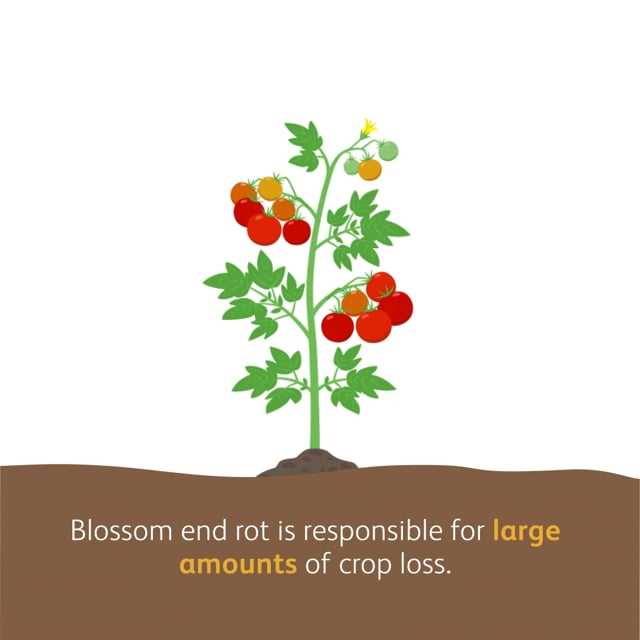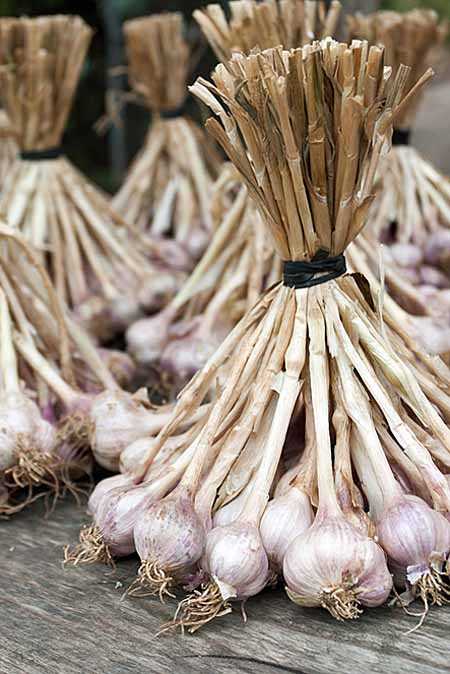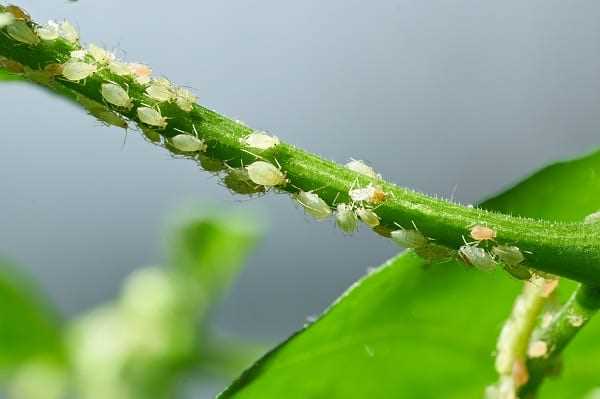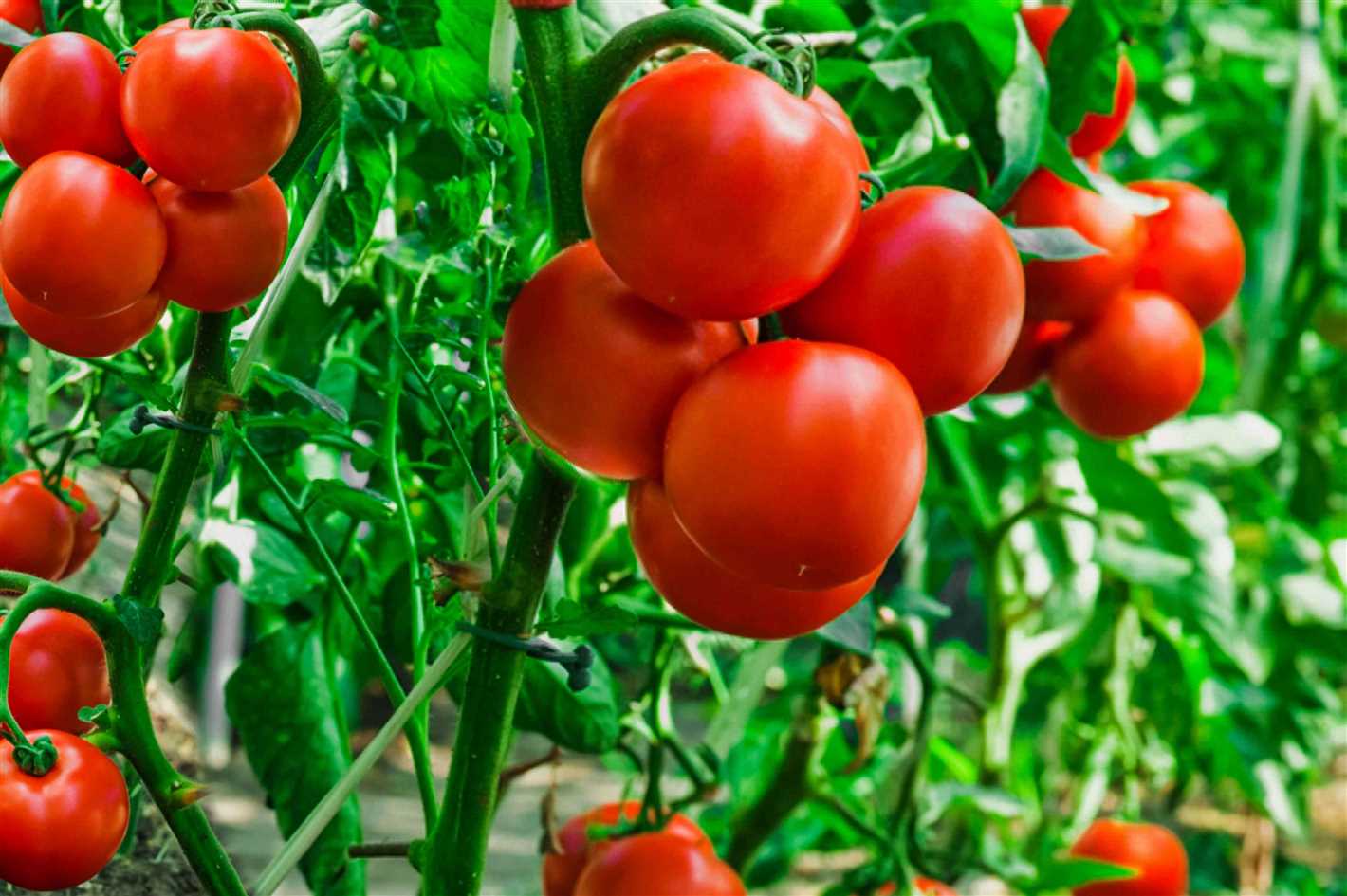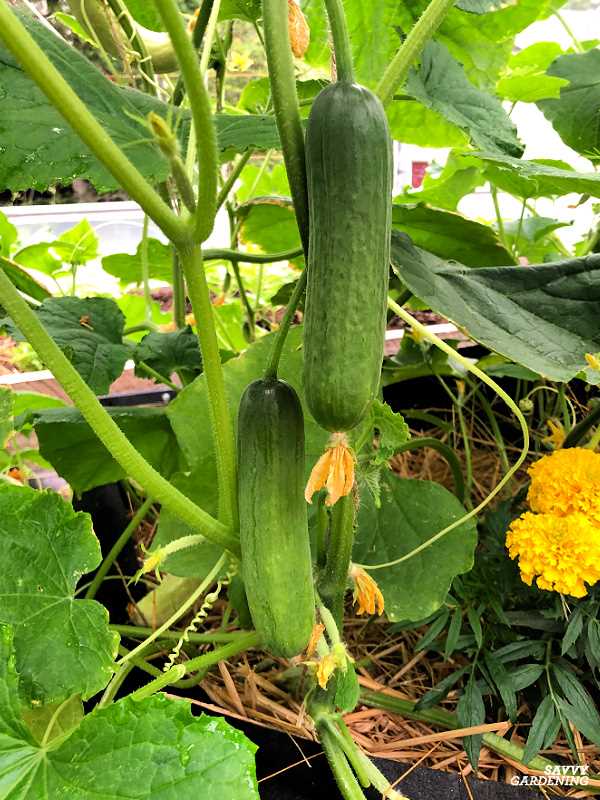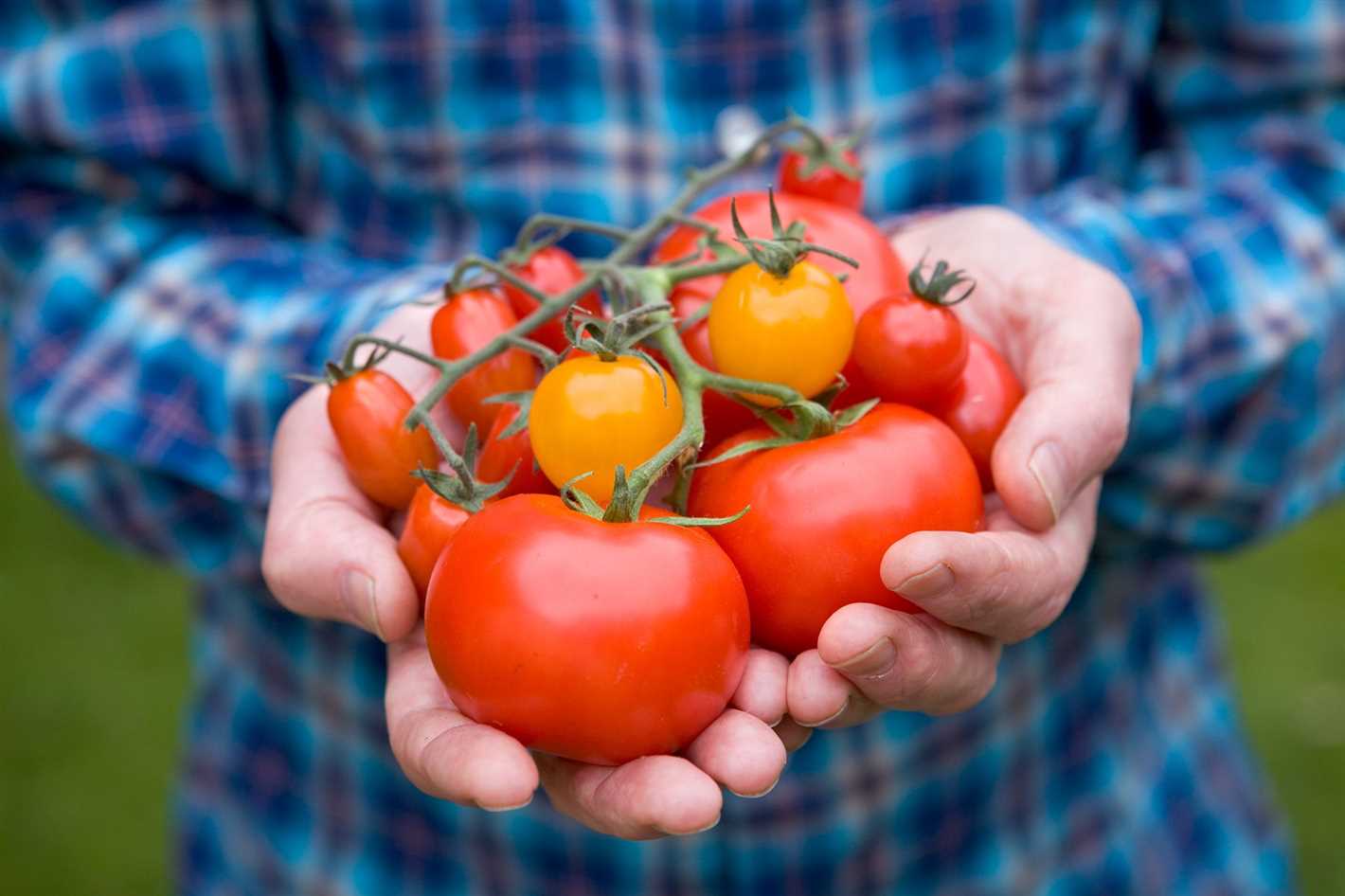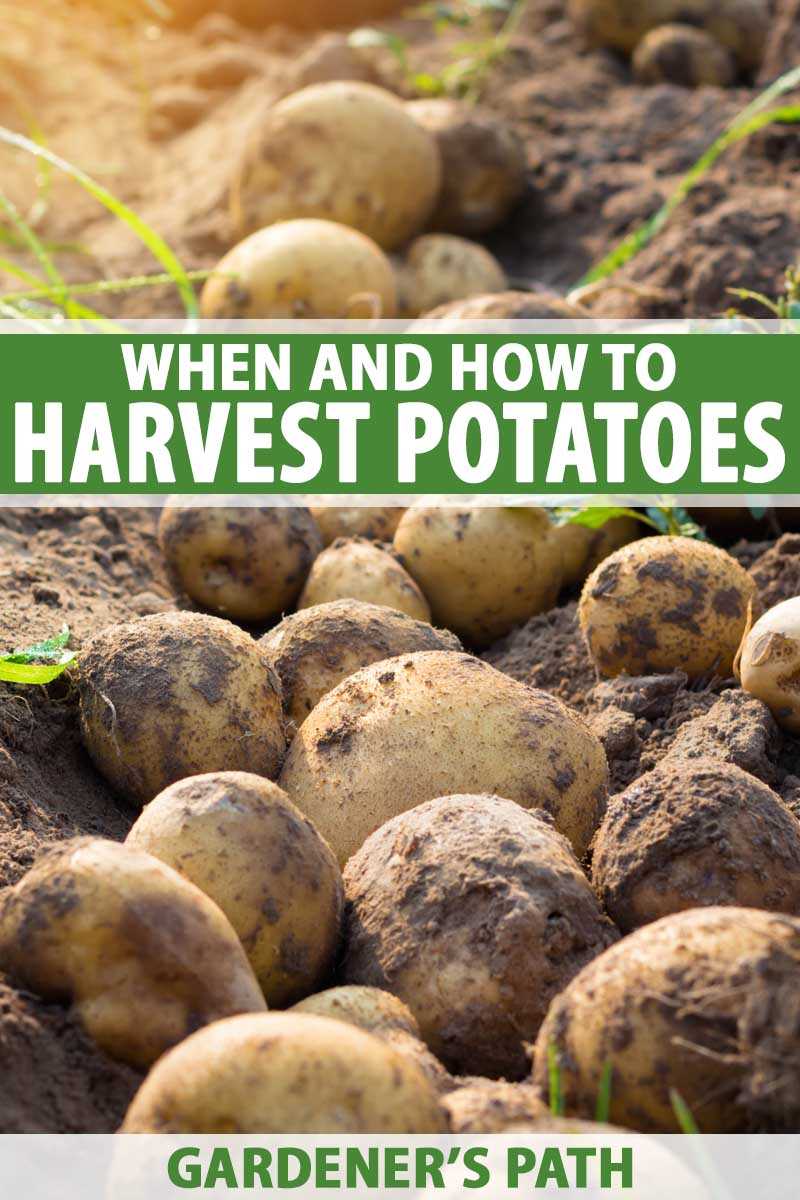- Why use chicken manure as fertilizer?
- Step 1: Understanding Chicken Manure
- What is chicken manure?
- What are the benefits of using chicken manure as fertilizer?
- Step 2: Preparing the Chicken Manure
- 1. Collecting the manure
- 2. Composting the manure
- 3. Curing the compost
- 4. Testing the compost
- How to compost chicken manure?
- How long does it take to compost chicken manure?
- Step 3: Applying Chicken Manure
- How to apply chicken manure to plants?
- When is the best time to apply chicken manure?
- “Question-Answer”
- Can I use raw chicken manure to fertilize my plants?
- How do I compost chicken manure?
- What is the best way to apply chicken manure to my plants?
- How often should I fertilize my plants with chicken manure?
- Can I use chicken manure as a fertilizer for all types of plants?
- Are there any precautions I should take when using chicken manure as a fertilizer?
- “Video” Chicken Manure as fertilizer for your vegetable garden. How I use it and get amazing growth.
Fertilising plants with chicken manure is a sustainable and cost-effective way to provide essential nutrients to your garden. Not only is it a rich source of nitrogen, phosphorous, and potassium, but it also improves soil structure and increases microbial activity. However, improper use of chicken manure can harm your plants and even contaminate groundwater. In this step-by-step guide, we will show you how to safely fertilise your plants with chicken manure.
Step 1: Choose the right chicken manure. Look for well-aged chicken manure, preferably one that has been composted for at least six months. Fresh chicken manure is high in ammonia and can burn your plants. The composting process helps to break down the manure, reducing its ammonia content and making it safer to use as a fertilizer.
Step 2: Prepare the soil. Before applying chicken manure, prepare the soil by removing weeds and loosening it with a garden fork. This will ensure better absorption of nutrients by the plants. If you have heavy clay soil, consider adding organic matter, such as compost or peat moss, to improve drainage.
Step 3: Apply the chicken manure. Spread a layer of chicken manure around the base of your plants, making sure to keep it away from the stems and leaves. Use approximately one inch of composted chicken manure for potted plants and two to three inches for garden beds. Avoid piling the manure too close to the plants, as it can cause root burn.
Step 4: Water thoroughly. After applying the chicken manure, water the plants thoroughly to help the nutrients soak into the soil. This will prevent the manure from burning the roots and ensure the nutrients are readily available to the plants.
Step 5: Monitor plant health. Keep an eye on the plants after fertilising them with chicken manure. If you notice any signs of nutrient deficiency or burning, such as yellowing leaves or wilting, reduce the amount of manure being applied. It’s better to under-fertilise than to over-fertilise with chicken manure.
In conclusion, fertilising plants with chicken manure can be a great way to provide nutrients to your garden, but it is important to do it safely. By following these steps and being mindful of the amount and quality of chicken manure you use, you can ensure healthy plants and a thriving garden.
Why use chicken manure as fertilizer?
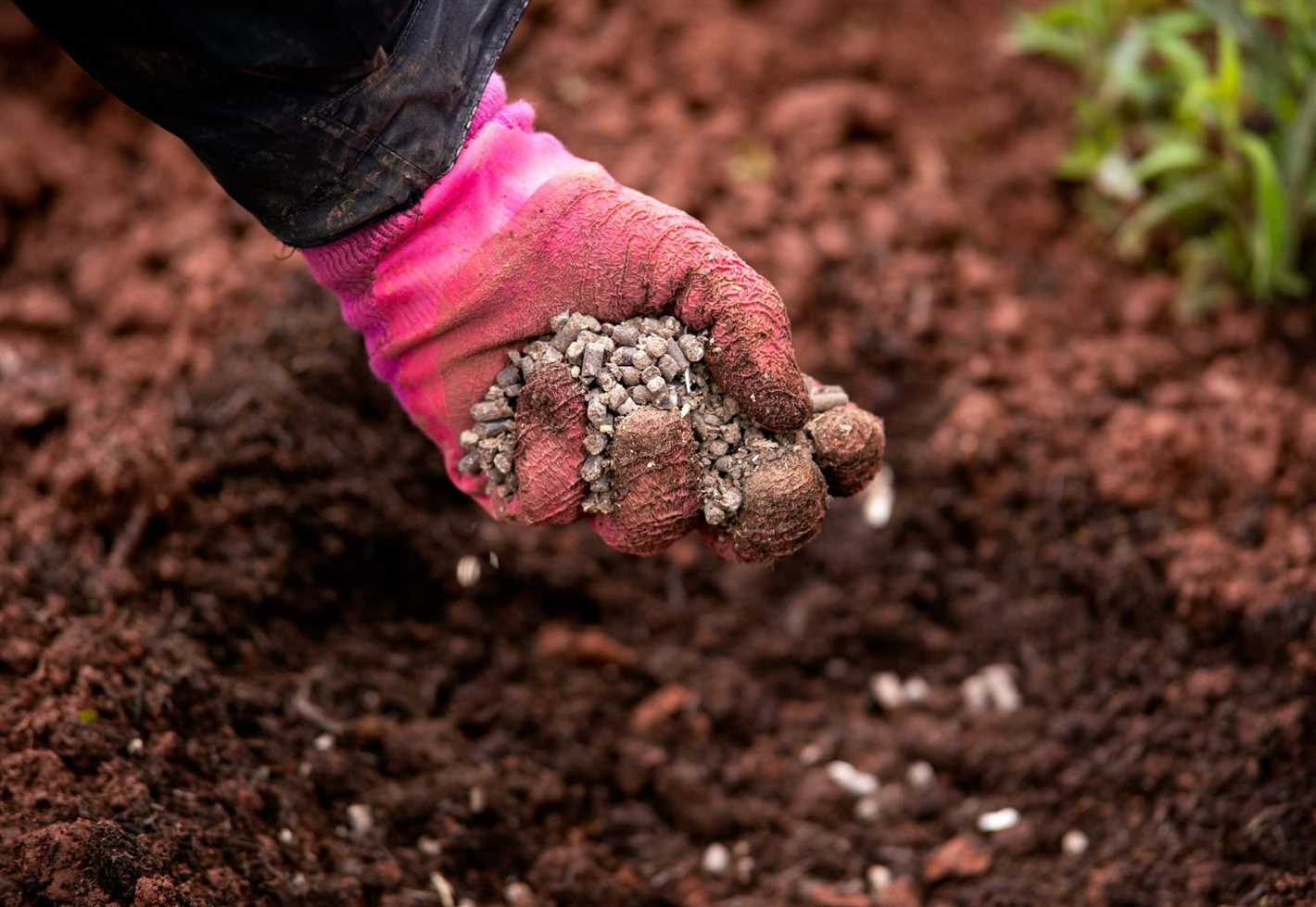
Chicken manure is an excellent organic fertilizer that can provide numerous benefits to plants. Here are some reasons why you should consider using chicken manure as fertilizer:
- Nutrient-rich: Chicken manure is high in essential nutrients like nitrogen, phosphorus, and potassium. These nutrients are crucial for plant growth and development.
- Slow-release: Unlike synthetic fertilizers that release nutrients quickly, chicken manure releases nutrients slowly over time. This helps prevent nutrient leaching and provides a steady supply of nutrients to plants.
- Improves soil structure: Chicken manure contains organic matter that can improve soil structure. It helps to increase soil porosity, water-holding capacity, and nutrient retention.
- Enriches soil microbes: Chicken manure is a source of beneficial microorganisms that can enhance the soil’s microbial activity. These microbes break down organic matter and release nutrients in a form that plants can easily absorb.
- Environmentally friendly: Using chicken manure as fertilizer is an eco-friendly alternative to chemical fertilizers. It reduces dependence on synthetic fertilizers and helps reduce environmental pollution.
However, it’s important to note that chicken manure should be properly composted before use to ensure that any harmful pathogens or bacteria are eliminated. Composting also helps to stabilize the nutrients and reduce the strong odor associated with fresh chicken manure.
Step 1: Understanding Chicken Manure
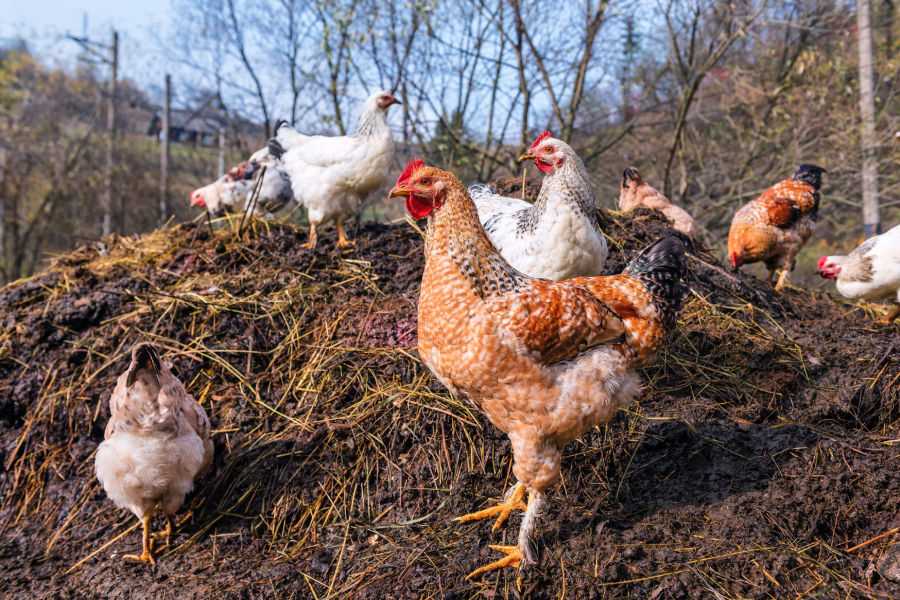
Before fertilising your plants with chicken manure, it’s important to understand what it is and how it can benefit your garden.
- What is chicken manure?
- Why use chicken manure as a fertilizer?
- High nutrient content: Chicken manure contains high levels of nitrogen, phosphorus, and potassium, which are essential for plant growth.
- Organic matter: Chicken manure adds organic matter to the soil, improving soil structure and moisture retention.
- Microbial activity: The organic matter in chicken manure promotes beneficial microbial activity in the soil, enhancing nutrient availability.
- Precautions when using chicken manure:
- Composting: Fresh chicken manure is high in ammonia and can be too strong for plants. It’s best to compost the manure before using it as a fertilizer.
- Pathogens: Chicken manure may contain harmful pathogens such as E. coli or Salmonella. Composting can help kill these pathogens, but it’s still important to wash your hands after handling chicken manure.
- Smell: Chicken manure can have a strong odor, so it’s best to use it in well-ventilated areas.
- Quantity: Use chicken manure sparingly, as too much can burn plants. It’s recommended to mix it with other organic materials or use it as a top dressing.
Chicken manure is the waste produced by chickens, which consists of their feces and urine. It is rich in nutrients such as nitrogen, phosphorus, and potassium, making it a valuable organic fertilizer for plants.
There are several benefits to using chicken manure as a fertilizer:
While chicken manure is an excellent fertilizer, there are some precautions you should take:
Now that you understand what chicken manure is and its benefits, you’re ready to move on to the next step of fertilising your plants with chicken manure.
What is chicken manure?
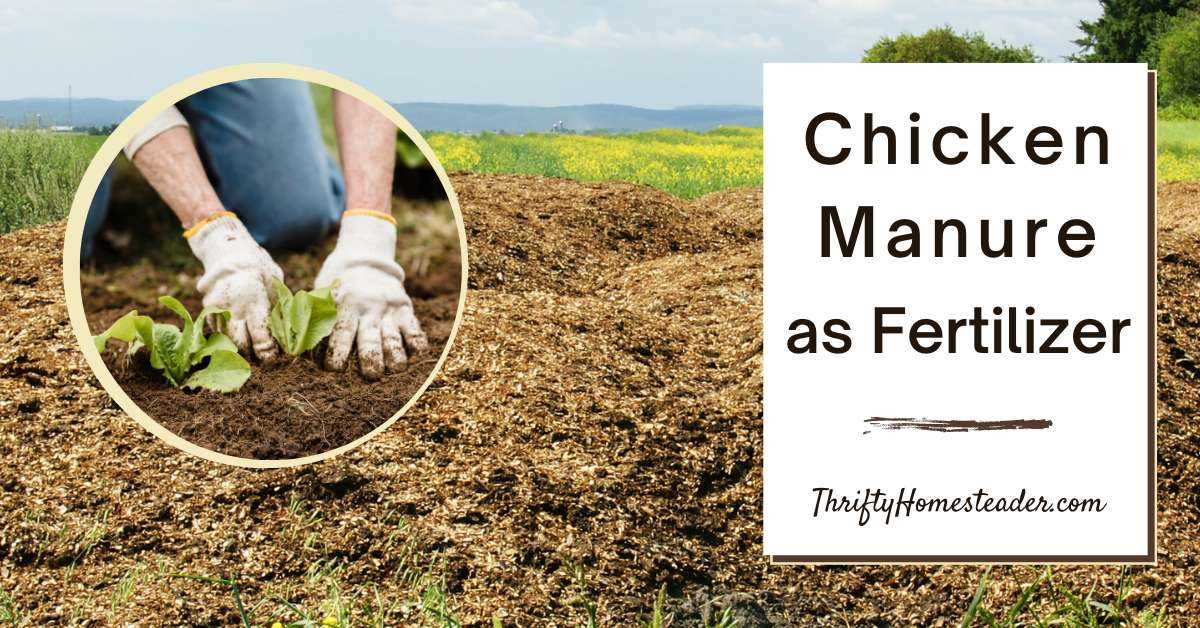
Chicken manure, also known as poultry manure, is the waste produced by chickens raised for egg production or meat consumption. It is a valuable and nutrient-rich organic fertilizer that can be used to promote plant growth and improve soil fertility.
Chicken manure is composed of a mixture of feces and urine, as well as bedding material such as straw or wood shavings. It is high in nitrogen, phosphorus, and potassium, which are essential nutrients for plant growth. In addition to these macronutrients, chicken manure also contains various micronutrients and organic matter that can enhance soil health.
When used as a fertilizer, chicken manure provides a slow-release source of nutrients, feeding plants over an extended period of time. It helps to replenish soil nutrients, improve soil structure, enhance water retention, and promote the growth of beneficial soil microorganisms.
However, it’s important to note that fresh chicken manure can be too potent for plants and may burn their roots if not properly composted or aged. Therefore, it’s recommended to compost or age chicken manure before using it as a fertilizer to reduce its heat and increase its safety and effectiveness.
| Nutrient | Content |
|---|---|
| Nitrogen (N) | 2.5-3.5% |
| Phosphorus (P) | 1.0-1.5% |
| Potassium (K) | 1.0-1.5% |
| Calcium (Ca) | 0.5-1.5% |
| Magnesium (Mg) | 1.0-2.0% |
| Sulfur (S) | 0.2-0.6% |
Before using chicken manure as a fertilizer, it’s important to check local regulations and guidelines, as well as the specific needs of your plants. It’s also advisable to wear gloves and wash your hands thoroughly after handling chicken manure to prevent potential contamination.
What are the benefits of using chicken manure as fertilizer?
Chicken manure is a rich source of organic matter and nutrients that can greatly benefit plants when used as fertilizer. Here are some of the key benefits of using chicken manure in gardening:
- High nutrient content: Chicken manure is packed with essential nutrients like nitrogen, phosphorus, and potassium, which are crucial for plant growth and development. These nutrients promote healthy root growth, vibrant foliage, and encourage blooming and fruiting.
- Slow release of nutrients: Unlike synthetic fertilizers, chicken manure releases nutrients gradually over time, providing a sustained supply of nourishment to plants. This slow release helps prevent nutrient leaching and reduces the risk of burning or damaging plants.
- Improves soil structure: Due to its organic nature, chicken manure improves the overall structure of the soil. It helps to increase water-holding capacity, promotes better aeration, and enhances soil fertility. The organic matter in chicken manure also encourages the growth of beneficial soil microorganisms.
- Enhances soil fertility: The nutrients in chicken manure not only nourish plants but also enrich the soil. Regular application of chicken manure can help replenish nutrient levels in depleted soil and increase its overall fertility. This can lead to healthier plants and higher crop yields.
- Cost-effective and eco-friendly: Chicken manure is a cost-effective and environmentally friendly fertilizer option. It is readily available and can be obtained from backyard chickens or farm suppliers. By using chicken manure as fertilizer, you are recycling a waste product and reducing the need for synthetic fertilizers, which can have negative environmental impacts.
While there are many benefits to using chicken manure as fertilizer, it’s important to use it responsibly. Excessive application of chicken manure can lead to nutrient imbalances and potential environmental issues. It’s best to follow recommended guidelines and use chicken manure in moderation to achieve the desired results without causing harm to plants or the environment.
Step 2: Preparing the Chicken Manure
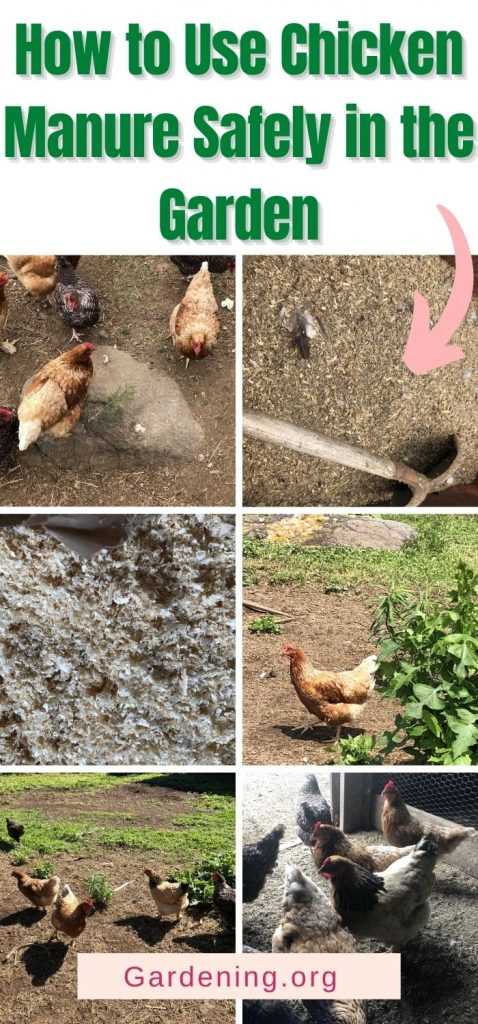
Before using chicken manure as a fertilizer, it is important to prepare it properly to avoid any potential health risks or damage to your plants. Follow these steps to ensure safe and effective use of chicken manure:
1. Collecting the manure
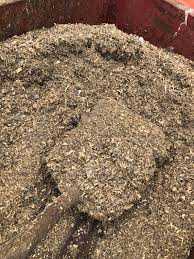
- Avoid collecting manure from chickens that have been recently treated with antibiotics, as these chemicals can negatively affect your plants.
- Use a shovel or scoop to collect the manure from the chicken coop or poultry farm.
- Collect both the solid and liquid components of the manure for optimal nutrient content.
2. Composting the manure

- Place the collected manure in a designated composting area away from your plants.
- Combine the manure with carbon-rich organic materials like straw, leaves, or wood chips. This helps balance the nutrient content and speed up the composting process.
- Avoid adding fresh manure directly to your plants as it can burn the roots and release harmful pathogens.
- Regularly turn the compost pile to ensure proper aeration and decomposition.
3. Curing the compost
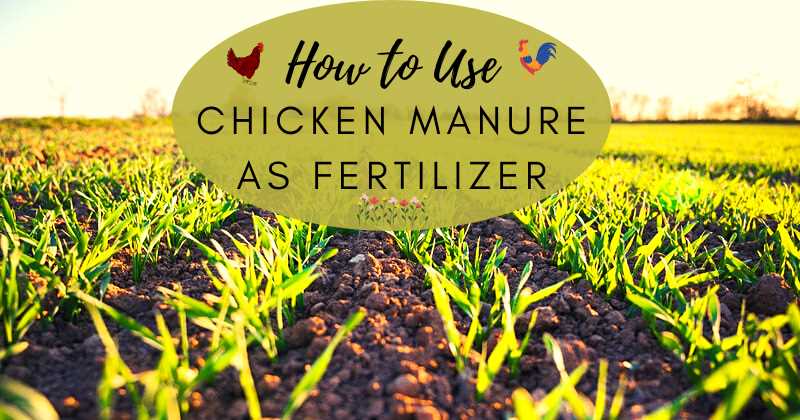
- Allow the compost to cure for at least three months before using it as fertilizer.
- This curing process helps break down any remaining pathogens and reduces the risk of burning your plants.
- During this time, monitor the moisture levels and ensure the compost remains damp but not soaking wet.
4. Testing the compost
- Before using the compost, test its nutrient content using a soil testing kit.
- This will help you determine the appropriate amount of compost to use for your plants.
- Adjust the compost to achieve the desired nutrient balance by adding additional organic materials or fertilizers if needed.
By following these steps, you can safely prepare your chicken manure for use as a fertilizer for your plants and ensure optimal growth and health. Remember to always wear gloves and wash your hands thoroughly after handling the manure to prevent any potential contamination.
How to compost chicken manure?
Composting chicken manure is a great way to take advantage of the nutrients in the manure while also reducing odor and eliminating potential pathogens. Follow these steps to compost chicken manure:
- Gather the materials: You will need a compost bin or pile, chicken manure, carbon-rich materials (such as straw or leaves), and a shovel or pitchfork for turning the compost.
- Prepare the composting area: Choose a suitable location for your compost bin or pile. Ensure that it is easily accessible and has good drainage.
- Layer the carbon-rich materials: Begin by creating a layer of carbon-rich materials at the bottom of the compost bin or pile. This will help to absorb excess moisture and aid in the decomposition process.
- Add the chicken manure: Spread a layer of chicken manure on top of the carbon-rich materials. Be sure to break up any clumps and distribute the manure evenly.
- Alternate layers: Continue layering carbon-rich materials and chicken manure, making sure to maintain a balance between the two. Aim for a ratio of around 3 parts carbon-rich materials to 1 part manure.
- Moisten the compost: To aid in decomposition, lightly moisten the compost with water. Be careful not to make it too wet, as excessive moisture can hinder the composting process.
- Turn the compost: Use a shovel or pitchfork to turn the compost regularly. This helps to introduce oxygen and speed up the decomposition process.
- Monitor the temperature: The compost pile should heat up as the decomposition process progresses. Ideally, the temperature should reach around 130-150°F (55-65°C). If it becomes too hot, turn the compost to cool it down. If it becomes too cold, add more chicken manure and carbon-rich materials.
- Wait for the compost to mature: The composting process can take several months to a year, depending on factors such as temperature and moisture. Once the compost has turned dark, crumbly, and earthy-smelling, it is ready to use on plants.
Composting chicken manure is a sustainable and cost-effective way to fertilize your plants. By following these steps, you can create rich organic compost that will benefit your garden while also reducing waste.
How long does it take to compost chicken manure?

Composting chicken manure is a great way to transform this nutrient-rich waste into a valuable organic fertilizer for your plants. However, the length of time it takes for chicken manure to fully compost can vary depending on several factors. These factors include the following:
- C:N ratio: The carbon to nitrogen ratio is an important factor that affects the composting process. Chicken manure has a high nitrogen content, so it is considered a “hot” or high-nitrogen material. To create the ideal environment for composting, it is recommended to mix chicken manure with a high-carbon material such as straw or wood chips to achieve a balanced C:N ratio.
- Aeration: Proper aeration is crucial for composting chicken manure. Turning the compost pile regularly helps to introduce oxygen into the pile and speed up the decomposition process. Lack of aeration may result in a longer composting time.
- Temperature: Composting is a biological process that requires heat to break down organic matter. The ideal temperature range for composting chicken manure is between 130°F and 160°F (55°C and 70°C). If the pile becomes too hot or too cold, it may slow down the decomposition process.
- Moisture: Maintaining the proper moisture level is essential for composting chicken manure. The ideal moisture range is between 40% and 60%. If the pile becomes too dry or too wet, it can inhibit the microbial activity necessary for decomposition.
Considering these factors, it generally takes between 3 to 6 months for chicken manure to fully compost. However, with proper management and favorable conditions, composting time can be reduced to as little as 1 to 2 months.
It is important to regularly monitor the compost pile, adjusting the moisture and aeration as needed. When the chicken manure is fully composted, it will have a dark, crumbly texture, a pleasant earthy smell, and should be free from any pathogens or weed seeds.
Step 3: Applying Chicken Manure
Now that you have prepared the chicken manure fertilizer, it’s time to apply it to your plants. Here’s how you can do it:
Choose the right time: It’s best to apply chicken manure fertilizer during the spring or fall when the plants are actively growing. Avoid applying it during hot summer days or during periods of heavy rain, as this can cause the nutrients to be washed away.
Calculate the amount: It’s important to determine the right amount of chicken manure fertilizer to be applied to your plants. This will vary depending on the type of plants you have and their specific nutrient requirements. Consult a gardening guide or a professional for proper dosage instructions.
Distribute evenly: Spread the chicken manure fertilize evenly around the base of your plants. Avoid applying it directly onto the leaves or stems, as this can cause burning. Use a rake or gardening tool to gently work the fertilizer into the top layer of soil.
Water thoroughly: After applying the chicken manure fertilizer, make sure to water your plants thoroughly. This will help the nutrients from the fertilizer to penetrate the soil and reach the plant roots.
Monitor and adjust: Keep an eye on your plants after applying the chicken manure fertilizer. Observe their growth and appearance. If you notice any signs of nutrient deficiency or excess, adjust the fertilizer dosage accordingly.
Remember, chicken manure fertilizer is highly potent, so it’s important to use it judiciously. Over-application can burn the plants and harm the soil ecosystem. Follow the instructions carefully and monitor the health of your plants to achieve optimal results.
How to apply chicken manure to plants?
Applying chicken manure to plants is a great way to fertilize them and provide them with essential nutrients. Here is a step-by-step guide on how to safely apply chicken manure to your plants:
- Choose the right type of chicken manure: There are different types of chicken manure available, such as fresh manure, composted manure, and aged manure. Composted or aged chicken manure is the best option as it is less likely to burn your plants.
- Prepare the chicken manure: If you are using fresh chicken manure, it is important to compost it for a few months to reduce the risk of burning your plants. Mix the manure with other organic materials like straw or leaves to speed up the composting process.
- Check the nitrogen content: Chicken manure is high in nitrogen, so it’s important to check the nitrogen content before applying it to your plants. Too much nitrogen can cause excessive growth and damage the plants.
- Apply the chicken manure: Spread the chicken manure around the base of your plants, ensuring it is evenly distributed. Avoid placing the manure directly on the leaves or stems of the plants, as this can cause burning.
- Water the plants: After applying the chicken manure, water the plants well to help the nutrients penetrate the soil and prevent the risk of burning.
- Monitor the plants: Keep an eye on your plants after applying the chicken manure. If you notice any signs of burning or excessive growth, adjust the amount of manure you are using or dilute it with water.
- Repeat the process: Chicken manure can be applied to plants every few weeks during the growing season. However, make sure not to overapply it, as this can lead to nutrient imbalances and damage the plants.
By following these steps, you can safely fertilize your plants with chicken manure and help them thrive. Remember to always use chicken manure in moderation and monitor your plants for any signs of stress or nutrient imbalances.
When is the best time to apply chicken manure?
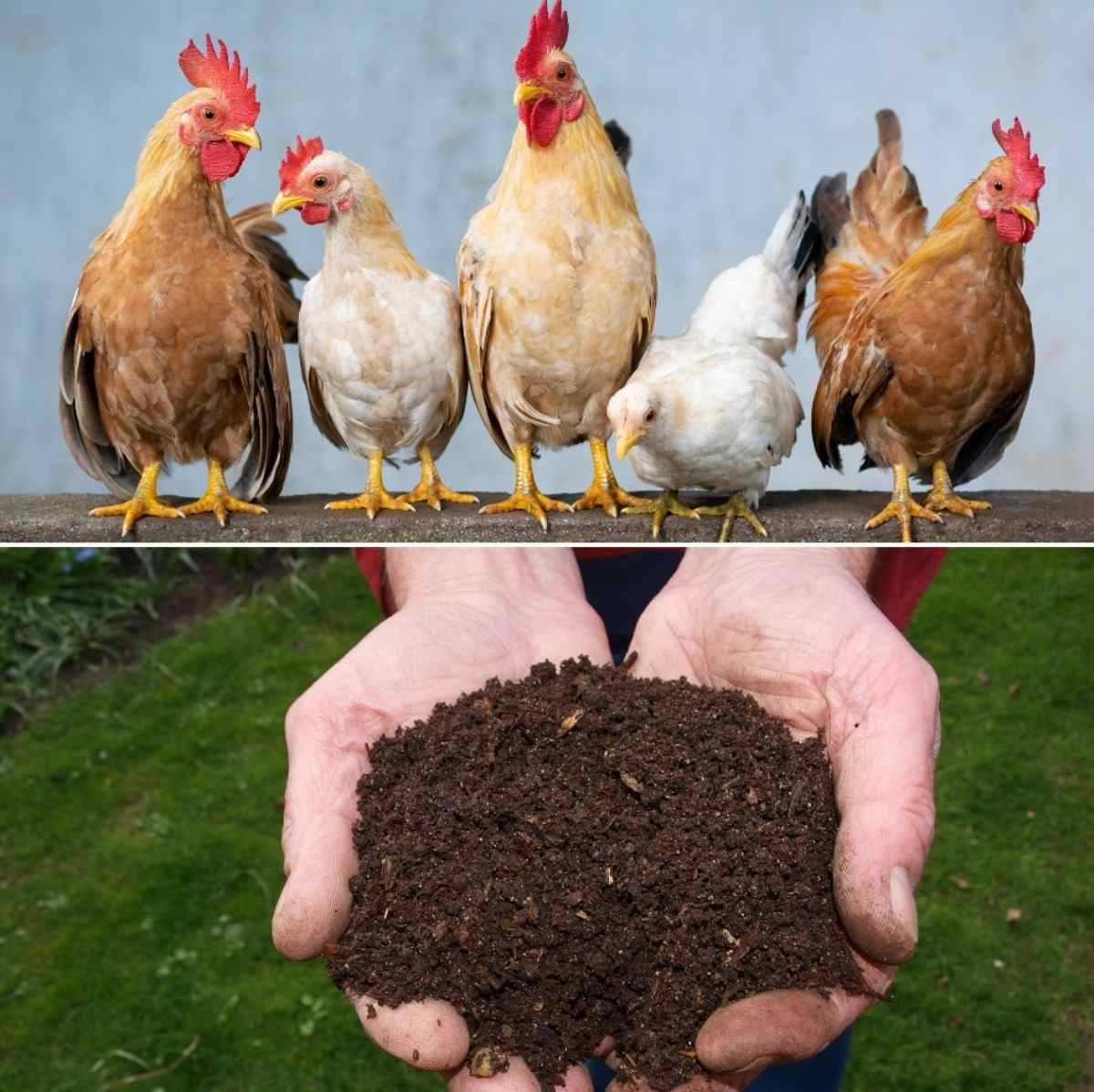
Applying chicken manure to your plants at the right time is crucial for their health and growth. Here are some factors to consider when determining the best time to apply chicken manure:
- Timing: The best time to apply chicken manure is in the spring or fall. Avoid applying it during hot summer months, as it may burn the plants.
- Soil temperature: Wait until the soil temperature has reached at least 50°F (10°C) before applying chicken manure. This allows the nutrients in the manure to be effectively absorbed by the plants.
- Plant stage: Apply chicken manure when your plants are in their active growing stage. This is usually when they have established a strong root system and are actively producing foliage.
- Plant type: Different plants have different nutrient requirements. Consider the specific needs of your plants and consult a gardening guide or expert to determine the best time to apply chicken manure.
It’s important to note that chicken manure should be properly composted or aged before application to avoid burning the plants and to ensure the nutrients are readily available for uptake. Composted chicken manure not only reduces the risk of burning, but also helps improve soil structure and fertility.
“Question-Answer”
Can I use raw chicken manure to fertilize my plants?
No, using raw chicken manure can be harmful to plants. It is high in nitrogen and can burn the roots and leaves of plants. It is best to compost the manure before using it as a fertilizer.
How do I compost chicken manure?
Composting chicken manure is easy. Start by mixing the manure with carbon-rich materials such as straw or sawdust. Add water to maintain moisture levels and turn the compost pile regularly. The heat generated by the composting process will kill any harmful pathogens in the manure.
What is the best way to apply chicken manure to my plants?
The best way to apply chicken manure to your plants is by top-dressing or side-dressing. Top-dressing involves spreading a layer of composted chicken manure around the base of the plants, while side-dressing involves placing the manure in a trench alongside the plants. Both methods provide a slow-release source of nutrients for the plants.
How often should I fertilize my plants with chicken manure?
It is recommended to fertilize plants with chicken manure once every 3-4 weeks during the growing season. However, the frequency may vary depending on the specific needs of your plants. It’s important not to over-fertilize, as this can cause nutrient imbalances and harm the plants.
Can I use chicken manure as a fertilizer for all types of plants?
Chicken manure can be used as a fertilizer for many types of plants, including vegetables, fruits, flowers, and trees. However, it is best to avoid using chicken manure on plants that are sensitive to high levels of nitrogen, such as seedlings or young plants.
Are there any precautions I should take when using chicken manure as a fertilizer?
When using chicken manure as a fertilizer, it is important to wear gloves and wash your hands thoroughly afterwards. The manure may contain harmful bacteria such as E. coli or Salmonella. It is also important to compost the manure properly to ensure any pathogens are killed before using it on your plants.
